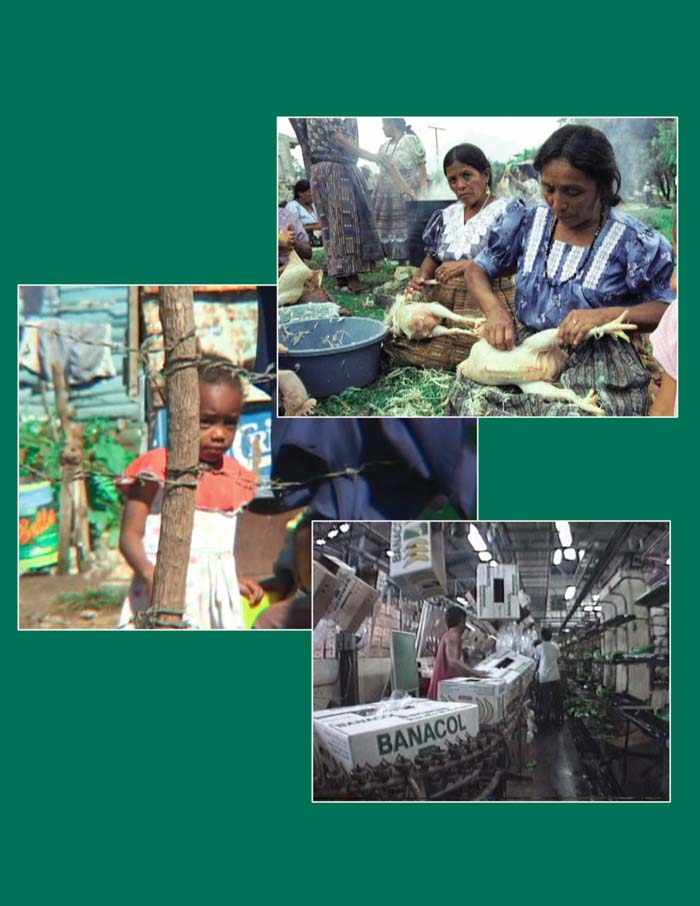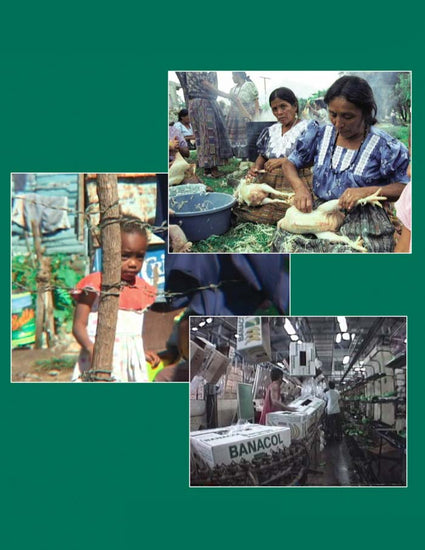80:20—The Developing World (5-part series)
Directors
Gretchen Kelbaugh Connell SmithProducers
Gretchen Kelbaugh Connell Smith Rowan Ridge Productions Story First Productions- Release Date 2006
- Running Time varies
- Closed Captions No
- Availability Canada, USA
- Regular price
- $780.00
- Regular price
-
- Sale price
- $780.00
- Unit price
- per
License Definitions
License Definitions
Institutions: Purchase at this price level if you are from a university, college, school board, school district, government agency, business or association. Note: Price does not include inter-library loan rights.
Community: Purchase at this price level if you are from a single K-12 School, registered not-for-profit, community organization, public library. Note: Price does not include right to circulate DVD/program to other schools within district.
DSL Terms
DSL Terms
DSL stands for Digital Site License and permits the buyer of the license (or Licensee) to host the film on a private, password-protected, closed server for the term of the license for educational use. If your institution does not have a server or a private third party hosting platform or you are looking into a license for curated one-time events or fixed term exhibitions, please contact us.
See below for more information about DSL terms of use. Upon order placement, our staff will contact you within 3 business days to arrange digital file delivery.
Couldn't load pickup availability
Share

This compact and comprehensive series explores what could be done to improve living conditions in lesser-developed countries. Dr. Rick McDaniel is originally an American who has spent many years in Canada, working in international development with the YMCA. His experience and personable approach make him the perfect guide for this tour through the hidden complexities of foreign aid. The Dominican Republic, on the Caribbean island of Hispaniola, is used as a point of reference throughout. It was there that conditions aptly illustrate the 80:20 phenomenon—that 80% of the world’s wealth is controlled by 20% of its population. Global inequality has only continued to worsen since the release of this documentary series in 2006.
Episodic Synopsis
A Tropical Paradise (23 minutes) provides an overview of the 80/20 split of global wealth and introduces the concept of developing countries and the origin of the term “third world.” It ends by asking why people in more developed countries should be concerned.
Interdependence (25.5 minutes) explains that, concerned or not, everyone is affected—through trading relationships and other factors of interdependence such as health, the environment, economics and global security.
The Legacy of Colonialism (24 minutes) examines the role worldview played in the 500 years of colonialism that began in the 15th century, tracing historical structures contributing to the current status of many lesser-developed countries. It notes the ray of hope in the late 1960s and early 1970s—that is, until the formation of OPEC and rising prices for oil.
Development and Debt (27.5 minutes) looks at the history of the international development assistance that began in the early 1960s and conditions attached to that aid, often benefitting those providing it more than its recipients. It examines patterns of trade, foreign exchange and the role of the banks in creating a cycle of borrowing and the Third World Debt crisis of the early 1980s.
Where to Next? (28 minutes) gives a thoughtful perspective on foreign aid, pointing out that outcomes are often greater for business development in donor nations than poverty reduction in recipient countries. When informed on development issues, the public can play a constructive role through political advocacy and adjusting consumption patterns. The achievements of NGOs operating on the ground appear to offer the best hope.
If your institution does not have a server or you are looking into a license for curated one-time events or fixed term exhibitions, please contact us.
Digital Site License (DSL) to Use Copyrighted Material - Terms of Use
The following terms are understood, accepted and effective upon payment of License Fee to Moving Images Distribution, the Licensor, and the buyer, the Licensee, named on the invoice. Copyrighted material, as identified on the invoice, hereinafter referred to as the Program.
- License: The Licensor hereby grants to the Licensee, for the DSL term listed on the invoice, the educational rights for digital streaming of the Program for use within the Licensee’s private, closed system, password-protected platform. Licensee acknowledges it shall not sublicense, sublease, rent, resell, duplicate, digitize or transfer to any other medium or format. Licensee shall not edit, cut or alter the Program nor post it on publicly-accessible websites or networks. This license (i) will not be included in any courses that could be sold to other institutions for future distance-education use; (ii) is non-transferable; and (iii) is not assignable by the Licensee.
- Users: The Licensee agrees that the users for this license shall be restricted to the Licensee’s accredited faculty, staff, students, and walk-in Library patrons.
- Expiration of Term: Upon expiration of the license term, the Licensee shall cease streaming of the Program and the Program must be inaccessible to Users after license term expiry or deleted from the Licensee’s digital servers upon expiry.
Acknowledgement of Limitations: The Licensee acknowledges the Program is copyrighted and the Licensor has a copyright interest in the Program which is legally protected against the Licensee’s use, copying or exhibition except as is set out above.
DVD w/PPR. PPR stands for Public Performance Rights. A DVD with PPR license permits the buyer to use the film in non-theatrical venues for educational purposes, community screenings and other non-commercial purposes. Standard educational DVD w/PPR purchases are in perpetuity for use by the institution, college, school, library, its staff and students.
All DVDs sales are final. We guarantee that all DVDs will be free from defects at the time of delivery. Defective DVDs will be replaced without charge within 30 days of date of shipment.
The creators of all works distributed by Moving Images Distribution hold copyright for their work. Copyrights are a form of intellectual property that gives the owner of the original work exclusive rights to that work, including its publication, distribution, adaptation and use. All purchasers are to specify use required precisely at time of ordering and agree to comply with all copyright, trademark and intellectual property law. No materials purchased may be used outside the rights acquired at time of purchase or may be reproduced in whole or in part by any method now known or hereafter devised. No materials purchased without specific broadcast license and agreement may be broadcast, retransmitted or exhibited in whole or in part without a specific license agreement from Moving Images Distribution for such use.





